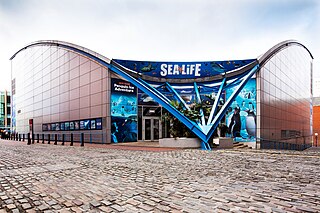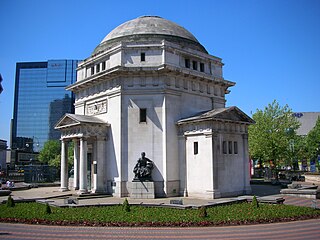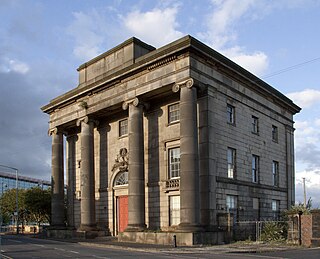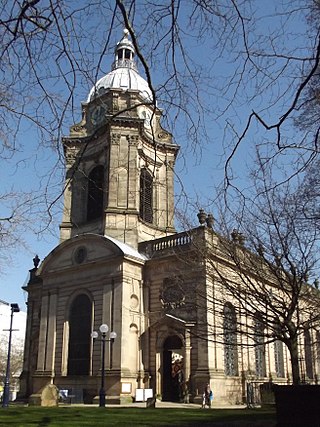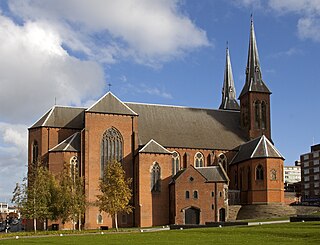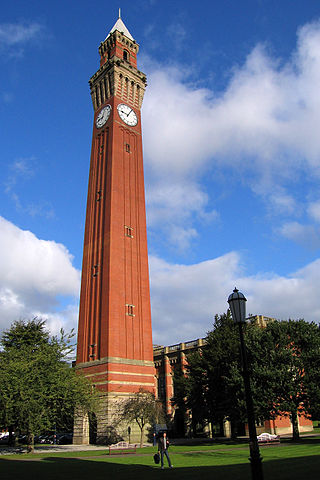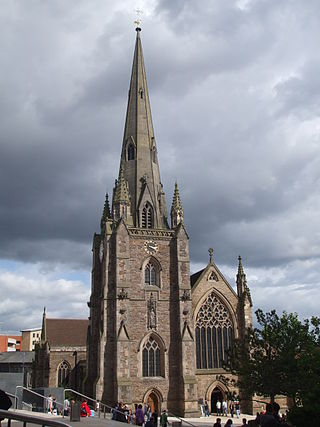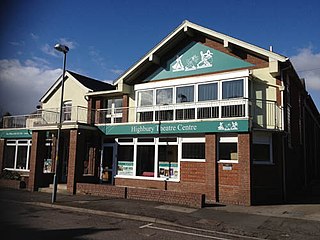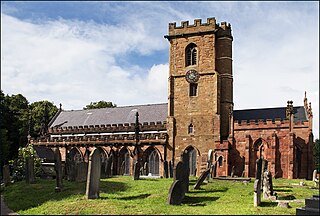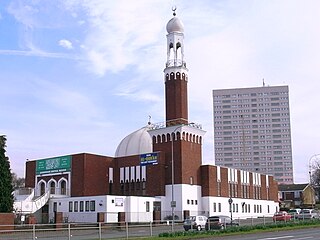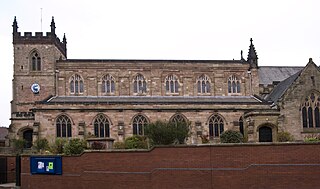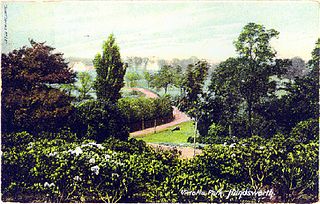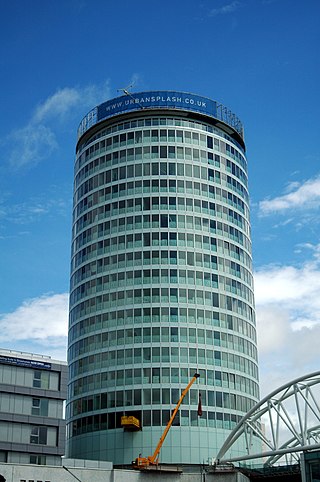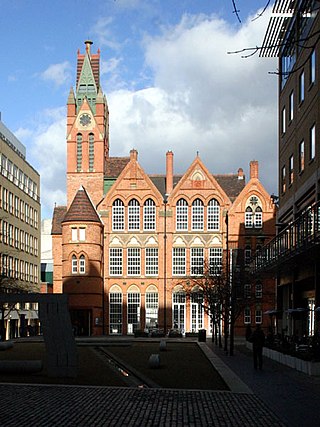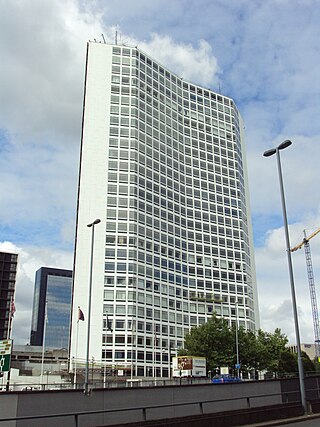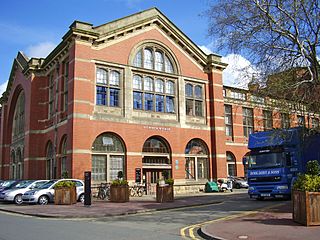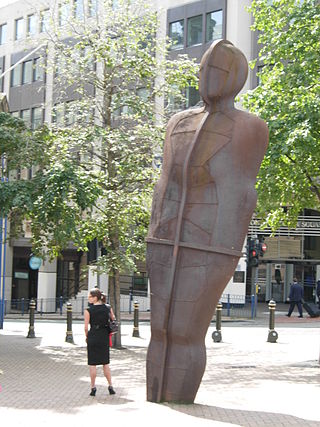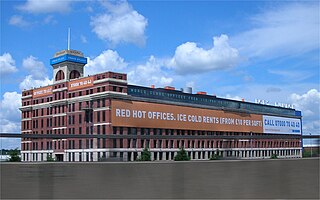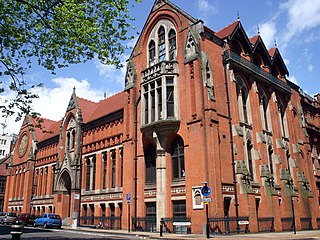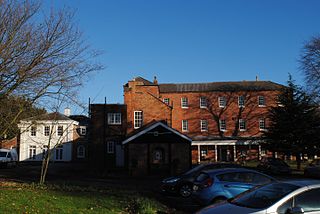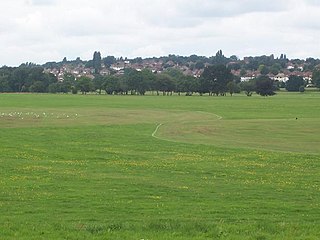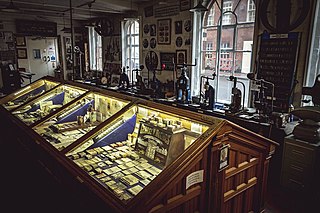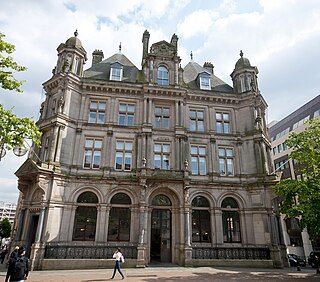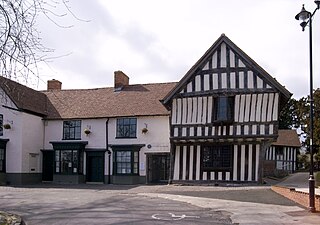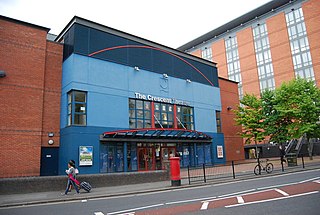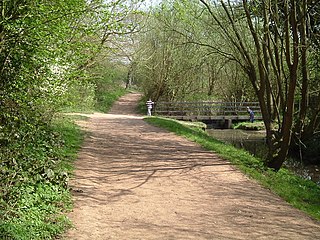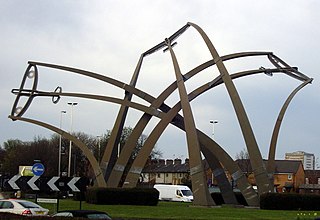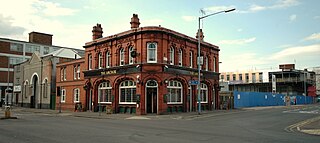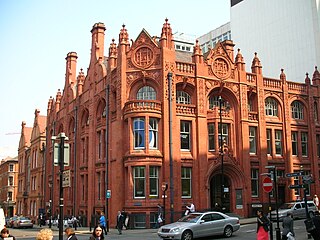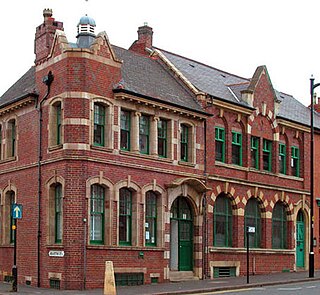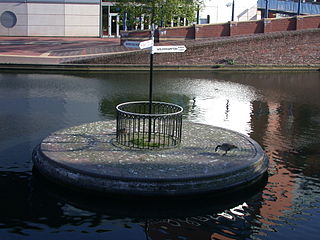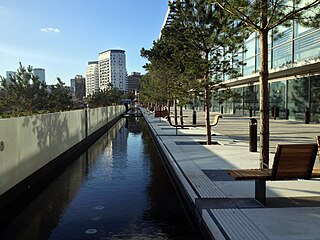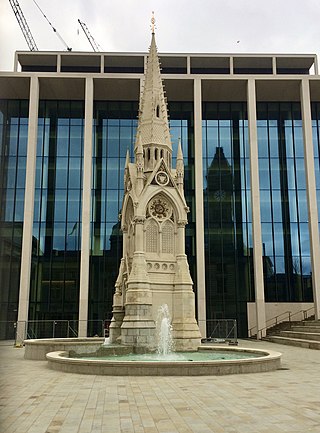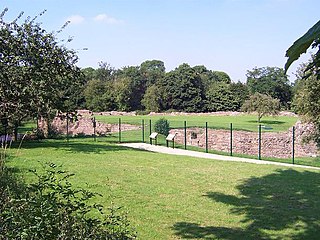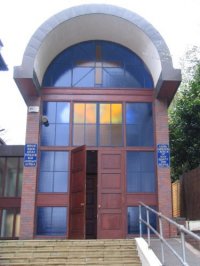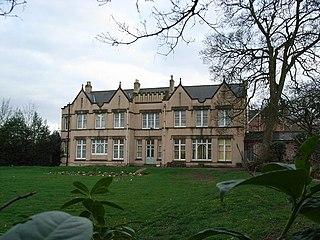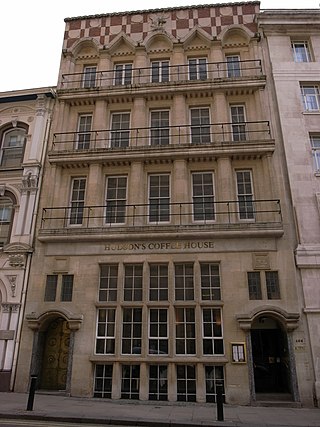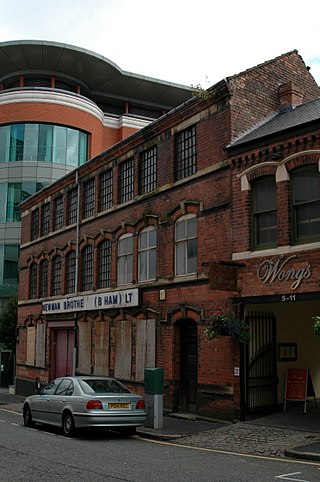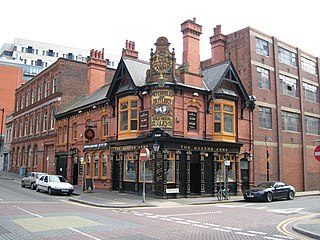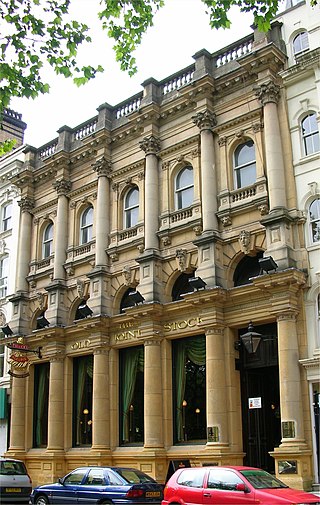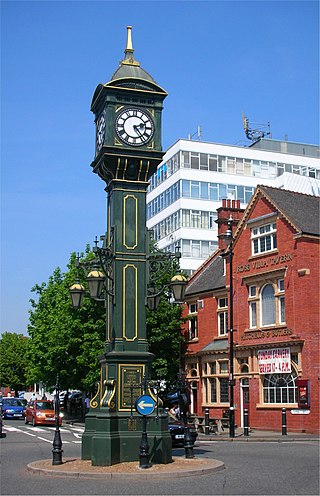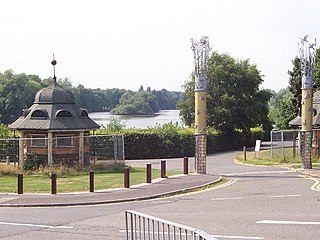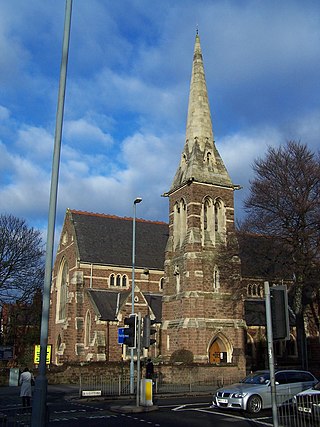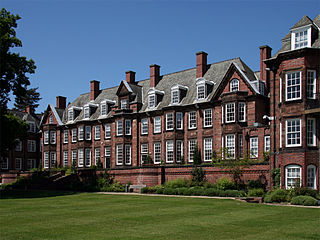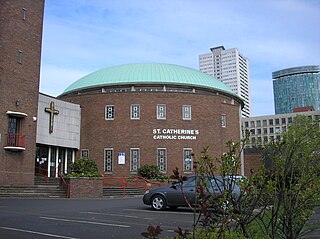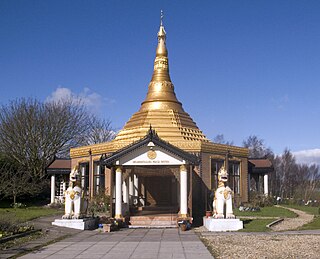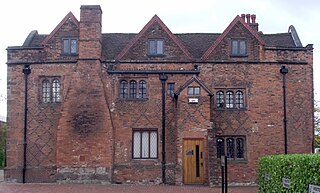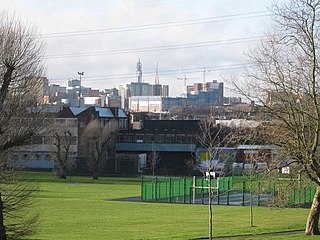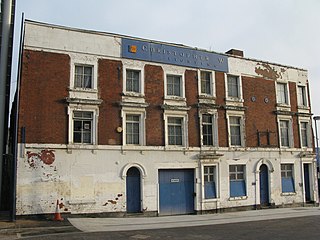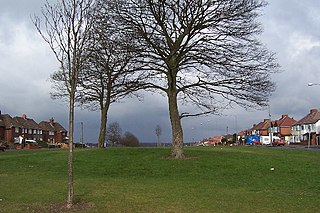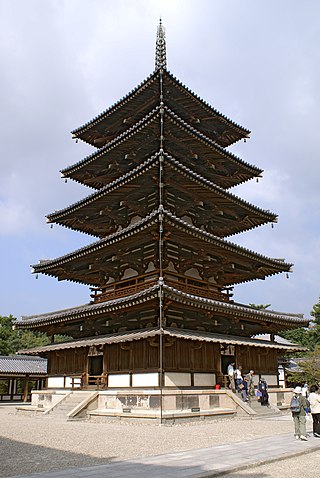73 Sights in Birmingham, United Kingdom (with Map and Images)
Legend
Welcome to your journey through the most beautiful sights in Birmingham, United Kingdom! Whether you want to discover the city's historical treasures or experience its modern highlights, you'll find everything your heart desires here. Be inspired by our selection and plan your unforgettable adventure in Birmingham. Dive into the diversity of this fascinating city and discover everything it has to offer.
Sightseeing Tours in BirminghamActivities in BirminghamThe National Sea Life Centre is an aquarium with over 60 displays of freshwater and marine life in Brindleyplace, Birmingham, England. Its ocean tank has a capacity of 1,000,000 litres (220,000 imp gal) of water and houses giant green sea turtles, blacktip reef sharks and tropical reef fish, with the only fully transparent 360-degree underwater tunnel in the United Kingdom. The building was designed by Sir Norman Foster.
Wikipedia: National Sea Life Centre, Birmingham (EN), Website, Opening Hours
Birmingham City Council House in Birmingham, England, is the home of Birmingham City Council, and thus the seat of local government for the city. It provides office accommodation for both employed council officers, including the Chief Executive, and elected council members, plus the council chamber, Lord Mayor's Suite, committee rooms and a large and ornate banqueting suite, complete with minstrel's gallery. The first-floor's exterior balcony is used by visiting dignitaries and victorious sports teams, to address crowds assembled below. The Council House, which has its own postcode, B1 1BB, is located in Victoria Square in the city centre and is a Grade II* listed building.
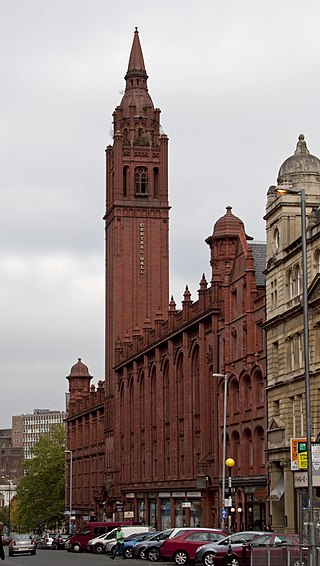
The Methodist Central Hall, 196–224 Corporation Street, Birmingham, England, is a three-storey red brick and terracotta Grade II* listed building with a distinctive tower at the northern end of Corporation Street. The design complements the Victoria Law Courts opposite, also in terracotta, and includes eclectic details such as the corner turrets resembling Indian chattris. It is located within the Steelhouse Conservation Area.
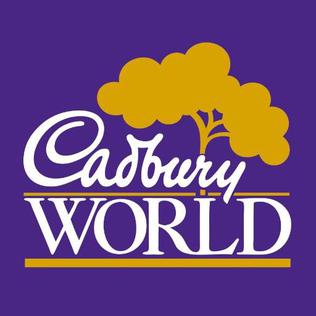
Cadbury World is a visitor attraction in Bournville, Birmingham, England, featuring a self-guided exhibition tour, created and run by the Cadbury Company. The tour tells the history of chocolate, and of the Cadbury business.
The Hall of Memory is a war memorial in Centenary Square, Birmingham, England, designed by S. N. Cooke and W. N. Twist. Erected 1922–25 by John Barnsley and Son, it commemorates the 12,320 Birmingham citizens who died in World War I.
6. Curzon Street Station
Birmingham Curzon Street railway station was a railway station in central Birmingham, England. Initially used as a major early passenger terminus before being eclipsed by newer facilities and converted into a goods depot, it was a continuously active railway facility up until 1966.
Wikipedia: Birmingham Curzon Street railway station (1838–1966) (EN)
7. Cathedral Church of Saint Philip
The Cathedral Church of Saint Philip, also called the Birmingham Cathedral, is a Church of England cathedral and the seat of the Bishop of Birmingham. Built as a parish church in the Baroque style by Thomas Archer, it was consecrated in 1715. Located on Colmore Row in central Birmingham, St Philip's became the cathedral of the newly formed Diocese of Birmingham in 1905. The cathedral is a Grade I listed building.
Wikipedia: St Philip's Cathedral, Birmingham (EN), Website, Heritage Website
8. The Metropolitan Cathedral and Basilica of St Chad
The Metropolitan Cathedral Church and Basilica of Saint Chad is a Catholic cathedral in Birmingham, England. It is the mother church of the Archdiocese of Birmingham and is dedicated to Saint Chad of Mercia.
Wikipedia: St Chad's Cathedral, Birmingham (EN), Url, Heritage Website
9. Birmingham Museum & Art Gallery
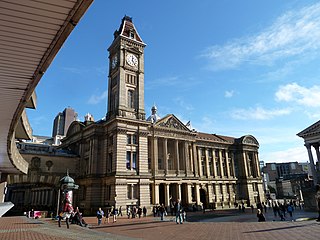
Birmingham Museum and Art Gallery (BM&AG) is a museum and art gallery in Birmingham, England. It has a collection of international importance covering fine art, ceramics, metalwork, jewellery, natural history, archaeology, ethnography, local history and industrial history.
10. Joseph Chamberlain Memorial Clocktower
The Joseph Chamberlain Memorial Clock Tower, or colloquially Old Joe, is a clock tower and campanile located in Chancellor's court at the University of Birmingham, in the suburb of Edgbaston. It is the tallest free-standing clock tower in the world, although its actual height is the subject of some confusion. The university lists it variously as 110 metres (361 ft), 99 metres (325 ft), and 100 metres tall, the last of which is supported by other sources. In a lecture in 1945, Mr C. G. Burton, secretary of the University, stated that "the tower stands 329 ft [100 m] high, the clock dials measure 17 ft [5.2 m] in diameter, the length of the clock hands are 10 and 6 ft [3.0 and 1.8 m], and the bell weighs 5 long tons [5.1 tonnes]".
11. St Martins
St Martin in the Bull Ring is a Church of England parish church in the city of Birmingham, West Midlands, England. It is the original parish church of Birmingham and stands between the Bull Ring Shopping Centre and the markets.
12. The Old Repertory Theatre
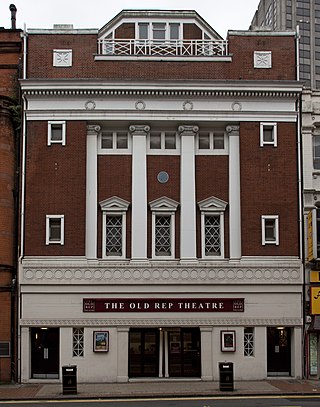
The Old Rep is a Grade II listed theatre, located on Station Street in Birmingham, England. When it was constructed in 1913, it was the United Kingdom's first ever purpose-built repertory theatre. When built, it became the permanent home for Barry Jackson's newly formed Birmingham Repertory Company, which began life in 1911, born from his amateur theatre group, The Pilgrim Players, founded in 1907. Jackson funded the construction of the theatre and established a professional, resident company there, which soon became a major powerhouse within the British theatre due to its innovative stagings of the works of both Shakespeare and George Bernard Shaw, resulting in some considering it to be Birmingham’s answer to The Old Vic.
13. Birmingham Rep
Birmingham Repertory Theatre, commonly called Birmingham Rep or just The Rep, is a producing theatre based on Centenary Square in Birmingham, England. Founded by Barry Jackson, it is the longest-established of Britain's building-based theatre companies and one of its most consistently innovative.
Wikipedia: Birmingham Repertory Theatre (EN), Url, Theatricalia
14. Highbury Little Theatre
Highbury Theatre is a non-professional theatre situated in the Royal Town of Sutton Coldfield, Birmingham, England. It is one of the oldest, established amateur theatres in the city and a founding member of the Little Theatre Guild of Great Britain.
15. St Mary's Church
St Mary's Church, Handsworth, also known as Handsworth Old Church, is a Grade II* listed Anglican church in Handsworth, Birmingham, England. Its ten-acre (4 hectare) grounds are contiguous with Handsworth Park. It lies just off the Birmingham Outer Circle, and south of a cutting housing the site of the former Handsworth Wood railway station. It is noteworthy as the resting place of famous progenitors of the industrial age, and has been described as the "Cathedral of the Industrial Revolution".
16. Birmingham Central Mosque
Birmingham Central Mosque, is a mosque in the Highgate area of Birmingham, England, run by the Birmingham Mosque Trust. The organization, 'Muslims in Britain’ classify the Birmingham Central Mosque as, nonsectarian. The mosque has a capacity of 6,000, including women. The mosque provides a Sharia Council which in 2016 handled 400 requests for divorce.
17. St Mary's
St Mary's Church, Moseley is a Grade II listed parish church in the Church of England located in Moseley, Birmingham. It is now part of a united benefice with St Anne's Church, Moseley. The War Memorial in the South-East corner of the Churchyard, facing Oxford Road, is unusual in that it depicts Christ upon the cross in carved stone. The War Memorial has achieved its own Grade II listing.
18. Handsworth Park
Handsworth Park is a park in the Handsworth area of Birmingham, England. It lies 15 minutes by bus from the centre of Birmingham and comprises 63 acres of landscaped grass slopes, including a large boating lake and a smaller pond fed by the Farcroft and Grove Brooks, flower beds, mature trees and shrubs with a diversity of wildlife, adjoining St. Mary's Church, Handsworth to the north, containing the graves of the fathers of the Industrial Revolution, James Watt, Matthew Boulton and William Murdoch, and the founders of Aston Villa Football Club and the Victoria Jubilee Allotments site to the south opened on 12 June 2010. The completion of a £9.5 million restoration and rejuvenation of Handsworth Park was celebrated with a Grand Re-Opening Celebration led by Councillor Mike Sharpe, the Lord Mayor of Birmingham, speaking from the restored bandstand at 2.00pm on Saturday 8 July 2006, followed by a count down by a large enthusiastic crowd and the release of clouds of confetti; in the words of one observer "Great wedding! Now we must make the marriage a success."
19. The Rotunda
The Rotunda is a cylindrical highrise building in Birmingham, England. The Grade II listed building is 81 metres (266 ft) tall and was completed in 1965. Originally designed to be an office block, by architect James A. Roberts ARIBA, it was refurbished between 2004 and 2008 by Urban Splash with Glenn Howells who turned it into a residential building, with serviced apartments on 19th and 20th floors. The building was officially reopened on 13 May 2008.
20. Ikon Gallery
The Ikon Gallery is an English gallery of contemporary art, located in Brindleyplace, Birmingham. It is housed in the Grade II listed, neo-Gothic former Oozells Street Board School, designed by John Henry Chamberlain in 1877.
21. The Institute
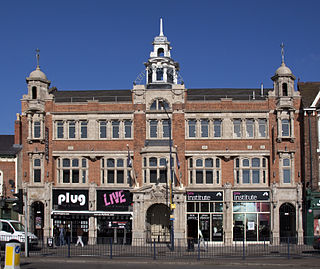
The Digbeth Institute (currently known for sponsorship reasons as the O2 Institute) is a music venue located in Birmingham, England. The venue opened in 1908 as a mission of Carrs Lane Congregational Church. It has also served as an event centre, civic building and nightclub.
22. J. Hudson & Co. (Whistles) Ltd.
-Ltd..png)
J Hudson & Co was founded in the 1870s in Birmingham by Joseph Hudson (1848–1930) and his brother James Hudson (1850–1889). The company became a manufacturer of whistles and continues as Acme Whistles. Acme is the world's largest and most famous producer of whistles. They are headquartered in the Jewellery Quarter district of Birmingham, England.
23. Back To Backs
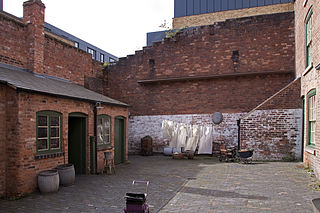
The Birmingham Back to Backs are the city's last surviving court of back-to-back houses. They are preserved as examples of the thousands of similar houses that were built around shared courtyards, for the rapidly increasing population of Britain's expanding industrial towns. They are a very particular sort of British terraced housing. This sort of housing was deemed unsatisfactory, and the passage of the Public Health Act 1875 meant that no more were built; instead byelaw terraced houses took their place. This court, at 50–54 Inge Street and 55–63 Hurst Street, is now operated as a historic house museum by the National Trust.
24. Sarehole Mill
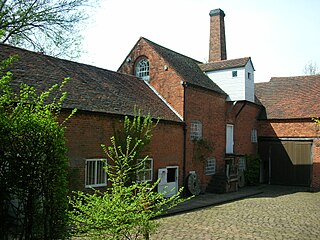
Sarehole Mill is a Grade II listed water mill, in an area once called Sarehole, on the River Cole in Hall Green, Birmingham, England. It is now run as a museum by the Birmingham Museums Trust. It is known for its association with J. R. R. Tolkien and is one of only two working water mills in Birmingham, with the other being New Hall Mill in Walmley, Sutton Coldfield.
25. Alpha Tower
Alpha Tower is a Grade II listed office skyscraper in Birmingham, England. It was designed by the Birmingham-born architect George Marsh of Richard Seifert & Partners as the headquarters of the commercial television company ATV and part of the company's production studio complex known as ATV Centre, an adjacent shorter tower was planned but was never built. ATV closed in 1982, after which the building became offices.
26. Orthodox Cathedral of the Dormition of the Theotokos and St. Andreas
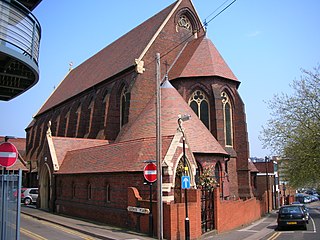
The Cathedral Church of the Dormition of the Mother of God and St. Andrew is a Greek Orthodox cathedral on Summer Hill Terrace in Birmingham, England, dedicated to the Dormition of the Theotokos and St Andreas. In 1958 the first Greek Orthodox Church in Birmingham was inaugurated. Regular liturgies began in Birmingham conducted by the first permanent priest, Father Nicodemos Anagnostou.
27. Lapworth Museum of Geology
The Lapworth Museum of Geology is a geological museum run by the University of Birmingham and located on the university's campus in Edgbaston, south Birmingham, England. The museum is named after the geologist Charles Lapworth, its origins dating back to 1880. It reopened in 2016 following a £2.7 million redevelopment project that created new galleries and displays, as well as modern visitor and educational facilities.
28. Iron:Man
Iron:Man is a statue by Antony Gormley, in Victoria Square, Birmingham, England. The statue is 6 metres (20 ft) tall, including the feet which are buried beneath the pavement, and weighs 6 metric tons. The statue leans 7.5° backwards and 5° to its left. It is said by the sculptor to represent the traditional skills of Birmingham and the Black Country practised during the Industrial Revolution.
29. Fort Dunlop
Fort Dunlop, is the common name of the original tyre factory and main office of Dunlop Rubber in the Erdington district of Birmingham, England. It was established in 1917, and by 1954 the entire factory area employed 10,000 workers. At one time it was the world's largest factory, when it employed 3,200 workers.
30. Perrott's Folly
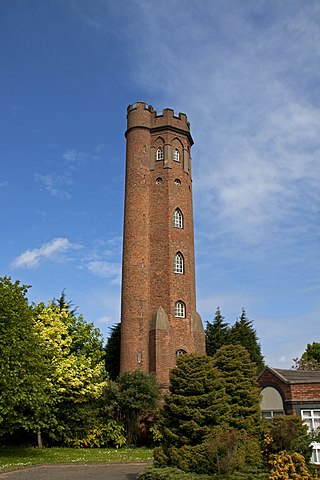
Perrott's Folly, grid reference SP047862, also known as The Monument, or The Observatory, is a 29-metre (96-foot) tall tower, built in 1758. It is a Grade II* listed building in the Edgbaston area of Birmingham, United Kingdom.
31. The Old Crown
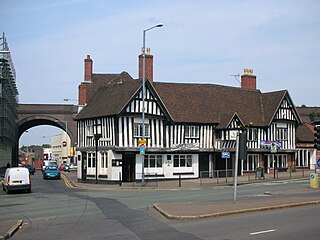
The Old Crown, a pub in Deritend, claims to be one of the oldest extant secular buildings in Birmingham, England. It is Grade II* listed, and claims to date back to c. 1368, retaining its "black and white" timber frame, although almost all of the present building dates from the early 16th century.
32. Blakesley Hall
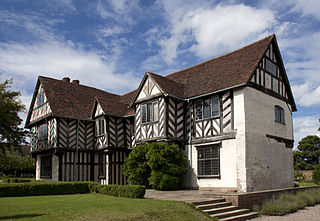
Blakesley Hall, a grade II* listed building is a Tudor hall on Blakesley Road in Yardley, Birmingham, England. It is one of the oldest buildings in Birmingham and is a typical example of Tudor architecture with the use of darkened timber and wattle-and-daub infill, with an external lime render which is painted white. The extensive use of close studding and herringbone patterns on all sides of the house make this a home that was designed to show the wealth and status of the owner. The house is also jettied on all sides. At the rear of the hall, built on the back of the chimney, is a brick kitchen block dating from circa 1650.
33. Birmingham School of Art
The Birmingham School of Art was a municipal art school based in the centre of Birmingham, England. Although the organisation was absorbed by Birmingham Polytechnic in 1971 and is now part of Birmingham City University's Faculty of Arts, Design and Media, its Grade I listed building on Margaret Street remains the home of the university's Department of Fine Art and is still commonly referred to by its original title.
34. Maryvale Institute
Maryvale Institute is a college of further and higher education, an International Catholic Distance-Learning College for Catechesis, Theology, Philosophy and Religious Education in Old Oscott, Great Barr, Birmingham, England. It specialises in the provision of part-time, distance learning courses to the lay faithful, consecrated religious and ministers of the Roman Catholic Church.
35. Perry Hall Playing Fields
Perry Hall Park or Perry Hall Country Park, and previously Perry Hall Playing Fields, is a park in Perry Barr, Birmingham, England, at grid reference SP059918. It was in Staffordshire until 1928. The site is protected by Fields in Trust through a legal "Deed of Dedication" safeguarding the future of the space as public recreation land for future generations to enjoy.
36. The Pen Museum
The Pen Museum is a museum in Birmingham, England, covering the history of Birmingham's steel pen trade. The only museum in the United Kingdom devoted to the history of the pen making industry, the Pen Museum explains how Birmingham became the centre of the world pen trade.
37. Victoria Square House
Victoria Square House, is an office building on the south side of Victoria Square, Birmingham, England. It was formerly Birmingham's Head Post Office, designed in the French Renaissance style by architect for the Office of Works Henry Tanner for the General Post Office.
38. The Old Grammar School
The Saracen's Head is the name formerly given to a group of late medieval buildings in Kings Norton, Birmingham. The buildings, together with the nearby Old Grammar School, won the BBC Restoration series in 2004. Following the restoration project, the Old Grammar School, Saint Nicolas Church and the Tudor Merchant's House were given the collective name of Saint Nicolas Place.
39. The Crescent Theatre
The Crescent Theatre is a multi-venue theatre run mostly by volunteers in Birmingham City Centre. It is part of the Brindleyplace development on Sheepcote Street. It has a resident company, one of the oldest theatre companies in the city, and a founding member of the Little Theatre Guild of Great Britain. As a venue, it also hires its three performance spaces to a host of visitors each year, nationally and internationally, both amateur and professional.
40. Woodgate Valley Country Park
Woodgate Valley Country Park is a country park within the Bartley Green and Quinton districts of Birmingham. It is the third largest Birmingham Country Park after Sutton Park and Lickey Hills Country Park. The park is maintained as a wildlife habitat but also has farm animals.
41. The Sentinel
Sentinel is a 16-metre-high (52 ft) sculpture by Tim Tolkien, installed upon Spitfire Island, a roundabout at the intersection of the Chester Road and the A47 Fort Parkway at the entrance to the Castle Vale estate in Birmingham, England.
42. The Anchor
The Anchor Inn is one of the oldest public houses in Digbeth, Birmingham, England, dating back to 1797. The current building was constructed in 1901 to a design by James and Lister Lea for the Holt Brewery Company. The terracotta on the façade is believed to have come from the Hathern Station Brick and Terracotta Company of Loughborough. On 10 December 1991 the building was designated Grade II listed building status, along with other nearby pubs such as the White Swan. The pub won the Campaign for Real Ale (CAMRA) award of 'Regional Pub of the Year' in 1996/7, 1998/9, 2003/4 and again 2007/8. The pub was taken over by Julian Rose-Gibbs in 2016, after being in the hands of the Keane family who ran it for 43 years.
43. The Exchange
17 & 19 Newhall Street is a red brick and architectural terracotta Grade I listed building, situated on the corner of Newhall Street and Edmund Street in the city centre of Birmingham, England. Although its official name is 17 & 19 Newhall Street, it is popularly known as The Exchange, and was previously known as the Bell Edison Telephone Building.
44. Museum of the Jewellery Quarter
The Museum of the Jewellery Quarter is a museum at 75–79 Vyse Street in Hockley, Birmingham, England. It is one of the nine museums run by the Birmingham Museums Trust, the largest independent museums trust in the United Kingdom.
45. Syriana
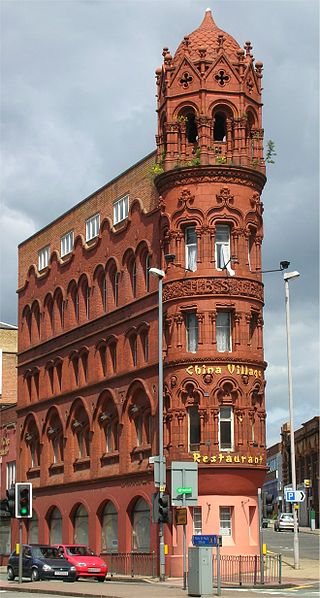
1–7 Constitution Hill in Birmingham, England is a Grade II listed building at the acute junction with Hampton Street, and is a former H.B. Sale factory. The red brick and terracotta structure is extremely thin, with a tower at one end.
46. Old Turn Junction
Old Turn Junction, or Deep Cutting Junction is a canal junction in Birmingham, England, where the Birmingham and Fazeley Canal meets the Birmingham Canal Navigations Main Line Canal. The junction features a circular island.
47. Saint Anne's Catholic Church
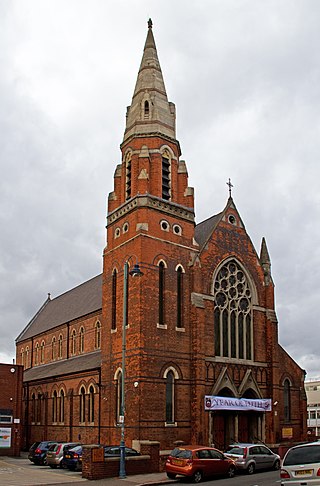
St Anne's Church is a Roman Catholic Parish church on Alcester Street in Digbeth, part of the city centre of Birmingham. It was founded by Saint John Henry Newman in 1849. It was moved to a new building in 1884 designed by London architects Albert Vicars and John O'Neill, who also designed St Hugh's Church in Lincoln, and helped design St Peter's Cathedral in Belfast.
48. Eastside City Park
Eastside City Park is a 6.75 acre urban park located in the Eastside district of Birmingham City Centre. Designed by architects Patel taylor with landscape architect Allain Provost, the park was opened to the public on 5 December 2012 at a cost of £11.75 million. Lining the frontage of Millennium Point, the park provides 14,300 square metres of landscaped green space, 310 trees, a 110 metres (360 ft) canal water feature and a public square incorporating 21 jet fountains.
49. Chamberlain Memorial Fountain
The Chamberlain Memorial, also known as the Chamberlain Memorial Fountain, is a monument in Chamberlain Square, Birmingham, England, erected in 1880 to commemorate the public service of Joseph Chamberlain (1836–1914), Birmingham businessman, councillor, mayor, Member of Parliament, and statesman. An inauguration ceremony was held on 20 October 1880, when Chamberlain himself was present.
50. Weoley Castle
Weoley Castle is the remains of a fortified manor house located in the Birmingham district of Weoley Castle, a primarily residential area, in the English West Midlands. Owned by Birmingham City Council and administered as a community museum by Birmingham Museums Trust, it is a Grade II listed building and a Scheduled monument. The castle was on Historic England's Heritage at Risk Register, but was removed in 2009 following repair work.
51. Church of The Holy Trinity & St. Luke
The Church of The Holy Trinity and St Luke is a Greek Orthodox church in the north of Birmingham, England, dedicated to The Holy Trinity and St Luke. In Greek: "Ελληνορθόδοξη Εκκλησία Της Αγίας Τριάδος και Αποστόλου Λουκά". The church celebrates the Feast Day of St. Luke on 18 October.
Wikipedia: Greek Orthodox Church of the Holy Trinity and St Luke (EN), Website
52. Pype Hayes Hall
Pype Hayes Hall is a former mansion house in the Pype Hayes area of Erdington, Birmingham, England. The hall's grounds now form Pype Hayes Park. It was formerly in the historic county of Warwickshire before being transferred into the new county of the West Midlands, along with the rest of the city, in 1974. It has grade II listed status.
53. Java Lounge
122–124 Colmore Row is a Grade I listed building on Colmore Row in Birmingham, England. Built as the Eagle Insurance Offices it was later occupied by Orion Insurance and was Hudson's Coffee House until late 2011, It is currently Java Lounge Coffee House.
54. Newman Brothers Coffin Furniture Factory
Newman Brothers at The Coffin Works is a museum in the Newman Brothers Coffin Furniture Factory building in the Jewellery Quarter conservation area in Birmingham, England. The museum educates visitors about the social and industrial history of the site, which operated from 1894–1998 as a coffin furniture factory. The museum opened in October 2014 after a fifteen-year campaign by the Birmingham Conservation Trust to save the factory building, which ceased trading in 1998, and raise the funds to transform it into a heritage attraction. Located at 13–15 Fleet Street, the building is Grade II* listed.
Wikipedia: Newman Brothers Coffin Furniture Factory (EN), Opening Hours
55. Queens Arms
The Queen's Arms is a Grade II listed public house in Birmingham, England, built c. 1870. It is noted for the tiled Art Nouveau signage on its exterior, which was remodelled in 1901 to the designs of the architect, Joseph D. Ward for its then owners, Mitchells & Butlers.
56. St Benedict's
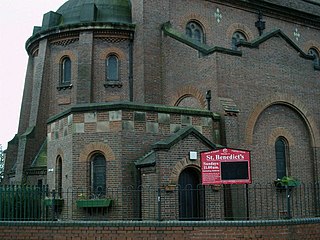
St Benedict's Church, Bordesley is a Church of England parish church in Hob Moor Road, Bordesley, West Midlands, England, about 2+1⁄2 miles (4 km) east of Birmingham city centre. It is an early 20th-century church in Byzantine Revival style and is Grade II listed.
57. The Old Joint Stock
The Old Joint Stock Theatre is a studio theatre and pub located at 4 Temple Row West in the centre of Birmingham, England, opposite St Philip's Cathedral. The listed building was designed as a library but owes its present name to its use by the Birmingham Joint Stock Bank.
58. Chamberlain Clock
The Chamberlain Clock is an Edwardian, cast-iron, clock tower in the Jewellery Quarter of Birmingham, England. It was erected in 1903 to mark Joseph Chamberlain's tour of South Africa between 26 December 1902 and 25 February 1903, after the end of the Second Boer War. The clock was unveiled during Chamberlain's lifetime, in January 1904 by Mary Crowninshield Endicott, Joseph Chamberlain's third wife.
59. Sheldon Hall
Sheldon Hall is an early 16th-century Grade II* listed manor house located on Gressel Lane in the Tile Cross area of Birmingham, England, consisting of a main block of two stories and attics built of red and black bricks with stone dressings. The city boundary runs along the eastern side of the property, and it was historically located within Warwickshire, near to the border with Worcestershire. The building is now used as a restaurant.
60. The Woodman
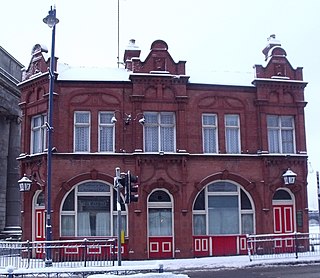
The Woodman is a pub in the Digbeth area of Birmingham, England. It is located on the corner of New Canal Street and what was formerly part of Albert Street, now part of an urban park called Eastside City Park and is Grade II listed. After an extended period of closure owing to the COVID-19 pandemic and the development of an HS2 rail scheme, the pub reopened on 13 September 2024.
61. Brookvale Park
Brookvale Park is located in the Stockland Green Ward of Erdington Constituency in England. The park surrounds Brookvale Park Lake. Within the park there is a bowling green, tennis courts, a children's play area and sailing club. Many local residents and groups take an active interest in the park and the lake.
62. Holy Trinity Parish Church
Holy Trinity Church is a Grade II* listed parish church in the Church of England in Birchfield, Birmingham. The church building was placed on a Heritage at Risk Register due to its poor condition in 2018, but repairs led to its removal from this register.
63. University House
Originally a hall of residence at the University of Birmingham, University House became the home for the university's business school in 2004 after having been extensively refurbished and extended to provide teaching and research facilities. It is located in grounds in the conservation area of Edgbaston, Birmingham, and is a grade II listed building.
64. St. Catherine's Catholic Church
St Catherine of Siena Church is a parish of the Roman Catholic Church situated on Bristol Street in Birmingham, in the Archdiocese of Birmingham. Founded in 1874, its parish church was demolished and replaced in 1964. It was run by the Missionary Society of St. Columban from 2005 to 2013.
65. Boulton & Watt Blowing Engine 1817
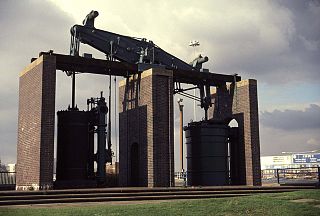
The Grazebrook Engine is an 1817 beam engine that was used for blowing air over the hot coals of a blast furnace to increase the heat. It is now found as sentinel sculpture on the Dartmouth Circus roundabout at the entrance of the A38(M) in Birmingham, England. It is believed to be the largest steam engine used in Birmingham.
66. The Dhammatalaka Pagoda
Dhamma Talaka Peace Pagoda was opened in Birmingham, UK in 1998 and is the only such building in traditional Burmese style in the Western hemisphere. On its grounds there are now a monastery and the teaching hall of a planned Buddhist Academy.
67. Meridian House
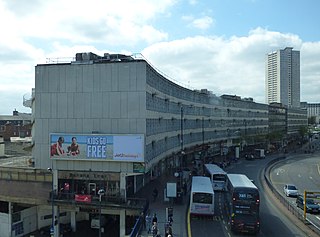
Ringway Centre is a Grade B locally listed building located on Smallbrook Queensway in the city centre of Birmingham, England. The six-storey, 230 metres (750 ft) long building was designed by architect James Roberts as part of the Inner Ring Road scheme in the 1950s and is notable for its gentle sweeping curved frontal elevation.
68. Minworth Greaves
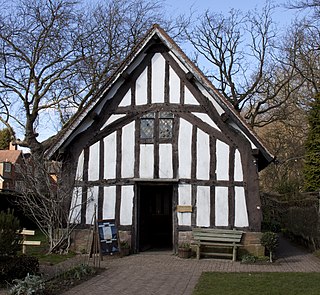
Minworth Greaves is a timber cruck-framed, Grade II listed building in Bournville, an area of Birmingham, England. It is thought to date from the 14th-century or earlier, possibly as early as 1250. It is owned by the Bournville Village Trust. Minworth Greaves is situated next to Selly Manor, and is run as part of Selly Manor Museum. It was originally built in Minworth, near Sutton Coldfield to the North of Birmingham. After falling into extreme disrepair, it was purchased by George Cadbury and re-built by Laurence Cadbury in 1932 in the grounds of Selly Manor.
69. Hay Hall
Hay Hall is a former 15th century hall located at Tyseley, in Birmingham, West Midlands, England. The extensive Hay Hall estate was situated between the Coventry and Warwick roads and included an area now known as Hay Mills, which was the site of a water mill. In the 16th century the timber-framed building was encased in brick. Originally a sub manor of the Este family, the building form comprised a central open hall with cross-wings at either end. There are no traces of the original moat in the area, with the modern surroundings currently developed as factories and works, known as Hay Hall Business Park. It was listed as Grade II in 1952.
70. Adderley Park
Adderley Park is an area in the east of Birmingham, England. Charles Adderley MP donated 10 acres (4.0 ha) of land to create the park, which he managed privately from 1855 to 1864. The park was opened to the public on 30 August 1856. At the park's entrance were buildings housing a library, reading room and museum. The buildings have since been demolished.
71. Christopher Wray Lighting Works
Christopher Wray Lighting works is a grade II-listed building in the east side of Birmingham city centre, England. The works consist of a complex of buildings fronted by a row of three townhouses, left vacant since 2003.
72. King's Standing Bowl Barrow
King's Standing Bowl Barrow or Kingstanding Mound, is a scheduled monument in the Kingstanding area of Birmingham. It comprises the buried and earthwork remains of a bowl barrow from the late Neolithic to the late Bronze Age, lying alongside the Icknield Street Roman road to the South of Sutton Park.
73. Pagoda
A pagoda is a tiered tower with multiple eaves common to Thailand, Cambodia, Nepal, China, Japan, Korea, Myanmar, Vietnam, and other parts of Asia. Most pagodas were built to have a religious function, most often Buddhist, but sometimes Taoist, and were often located in or near viharas. The pagoda traces its origins to the stupa, while its design was developed in ancient India. Chinese pagodas are a traditional part of Chinese architecture. In addition to religious use, since ancient times Chinese pagodas have been praised for the spectacular views they offer, and many classical poems attest to the joy of scaling pagodas.
Share
How likely are you to recommend us?
Disclaimer Please be aware of your surroundings and do not enter private property. We are not liable for any damages that occur during the tours.
